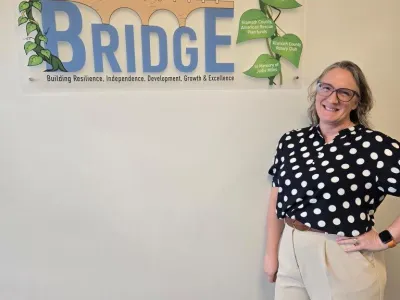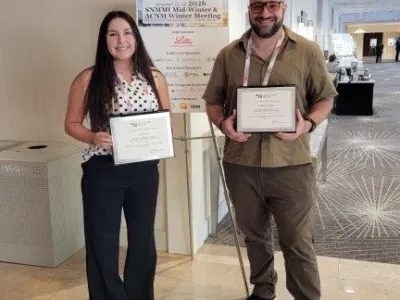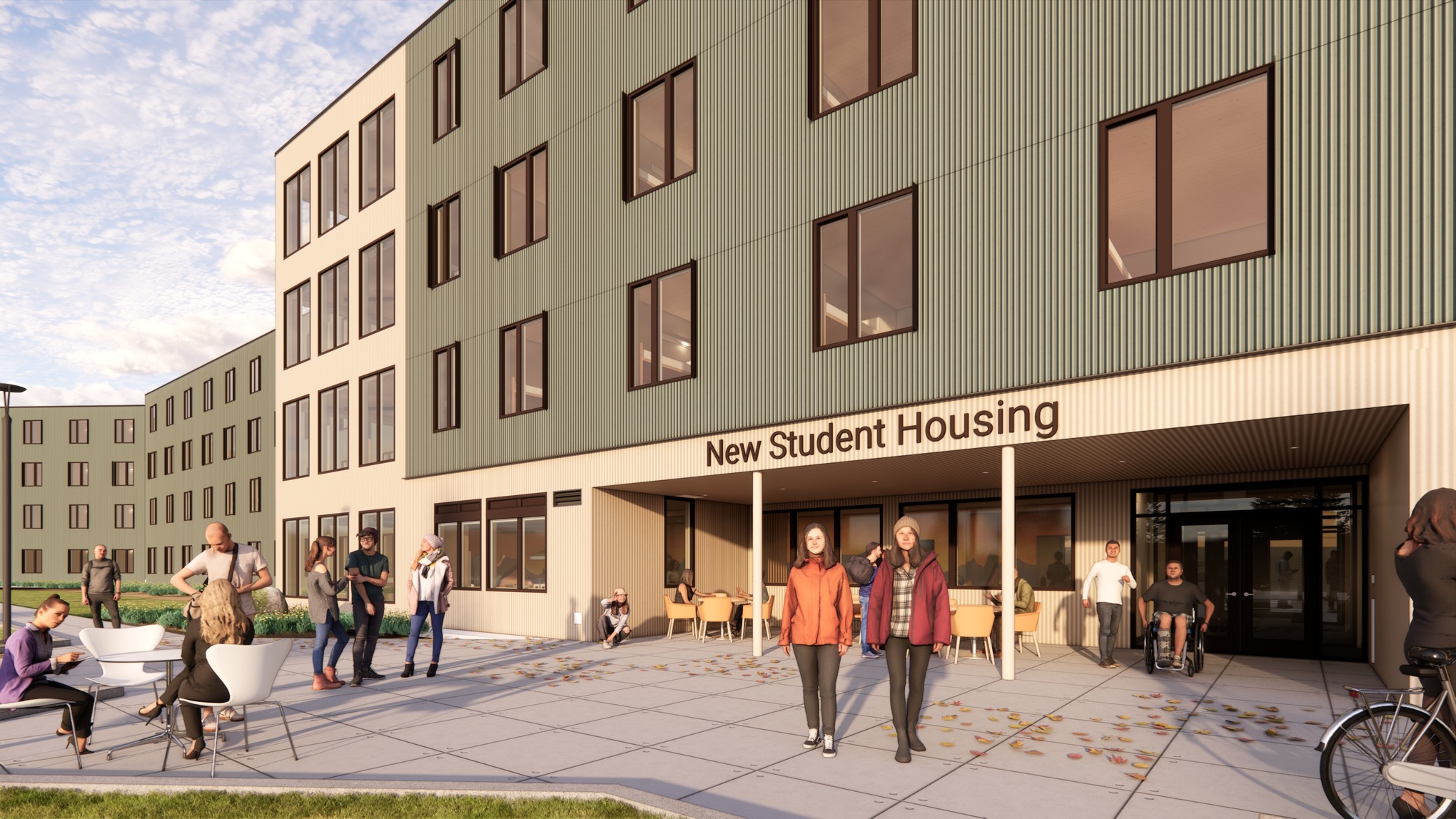
Oregon Institute of Technology (Oregon Tech) is focusing on the student experience and incorporating hands-on learning into the construction of its new $35 million mass timber residence hall at the Klamath Falls campus. The 86,170-square-foot, four-story building will house 517 students, addressing the university’s growing need for additional on-campus housing. Construction is expected to be completed in December 2025.
The vision for this new residence hall was directed by a steering committee at Oregon Tech, which included students. The concept is to provide a dynamic and enriched community experience through a high-quality, long-lasting building that feeds curiosity and is a place to retreat and relax. With these qualities in mind, the facility is designed to showcase mass timber construction—a renewable building material that significantly reduces the building’s carbon footprint while supporting Oregon Tech’s commitment to sustainability.
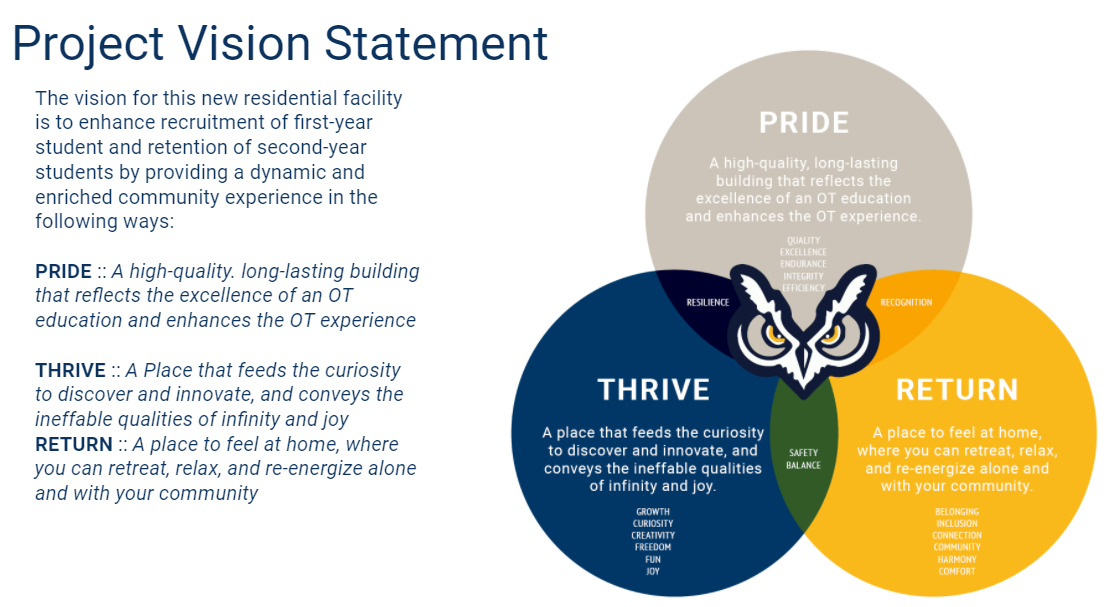
“Utilizing mass timber aligns with Oregon Tech’s history of sustainable design and environmental stewardship,” said Kurt Haapala, a Partner at Mahlum Architects, the firm that designed the structure. “Mass timber provides aesthetic and functional benefits, such as exposed wood ceilings and efficient manufacturing techniques that reduce waste and improve construction timelines.”
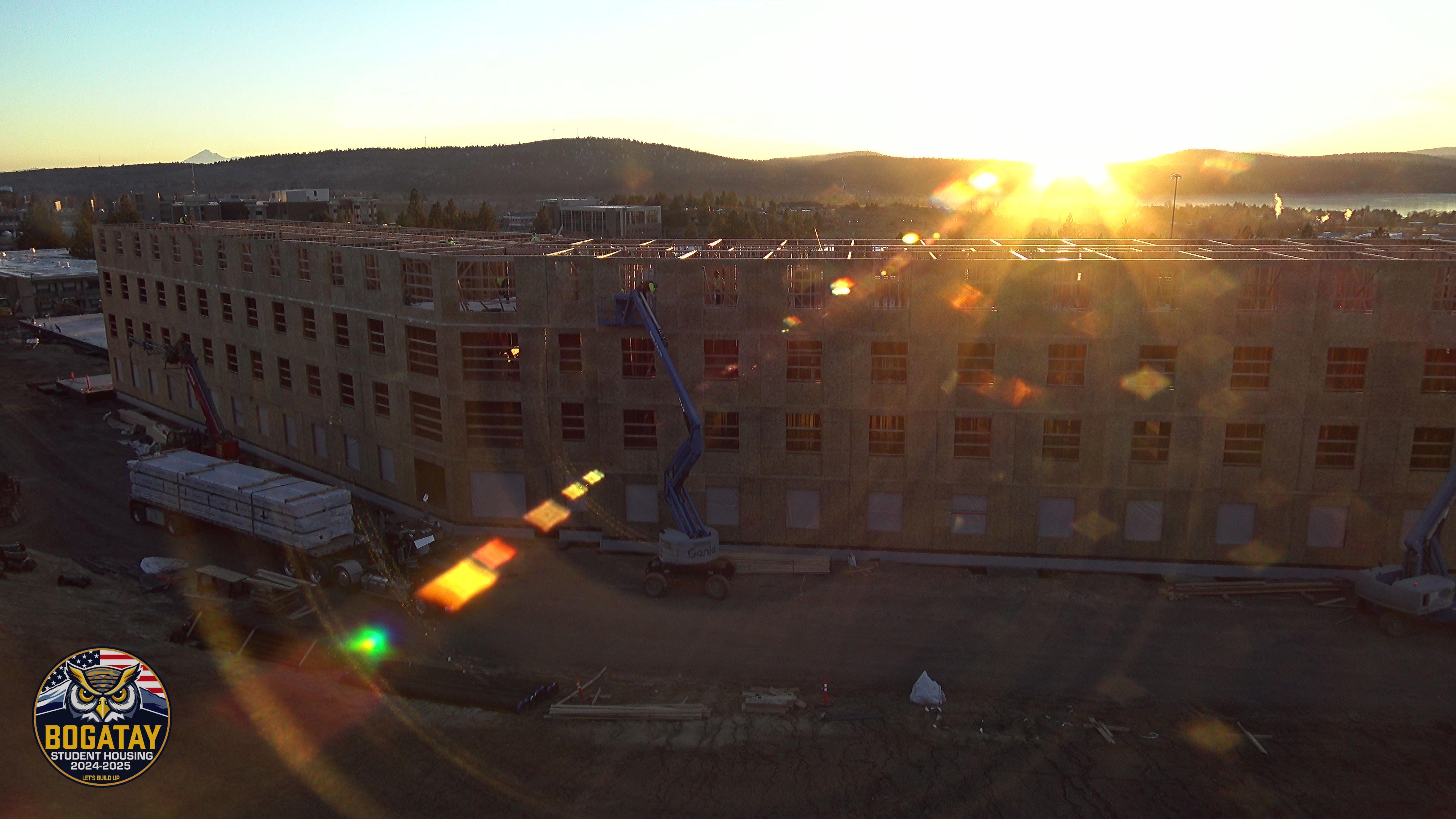
Associate Principal Joseph Mayo at Mahlum Architects describes the building as a biophilic design, which aims to connect people with nature by incorporating natural elements into buildings. “Biophilic material has a number of health and well-being benefits, such as reduced stress, greater relaxation, connection to nature, and connection to local and regional forests,” said Mayo.
“This new residence hall demonstrates how Oregon Tech continues to lead in sustainability and innovation while addressing the needs of our growing student community,” said Oregon Tech President Dr. Nagi Naganathan. “With support from the Oregon Legislature and the Office of the Governor, Oregon Tech is constructing one of the first residence halls in Oregon to utilize mass timber floors and roofs with panelized wood frame walls, and it will serve as a landmark example of carbon-efficient construction in higher education.”
Eighty-nine percent of the project’s construction work is being provided by firms within a 100-mile radius of campus, with 57% based in Klamath Falls and 32% from Southern Oregon. The lead construction company, Bogatay Construction, Inc., is based in Klamath Falls, with offices adjacent to the campus.
Matt Bogatay, President of Bogatay Construction, highlighted the sustainability and efficiency of cross-laminated timber (CLT) as the primary superstructure for all four stories. “Using prefabricated CLT panels reduces labor, material waste, and the building’s carbon footprint, all while creating a high-quality, safe living environment for students.” (Timber is also a fire-resistive material that chars and insulates the unburned wood beneath, which slows the spread and growth of fire.)
Student involvement has been central to the project. Through steering committee participation, students contributed ideas for community spaces and shared their vision for the building. “Students wanted a place of pride, a place to return to, and a place to thrive,” said Haapala. “Their input guided key decisions throughout the design process.”
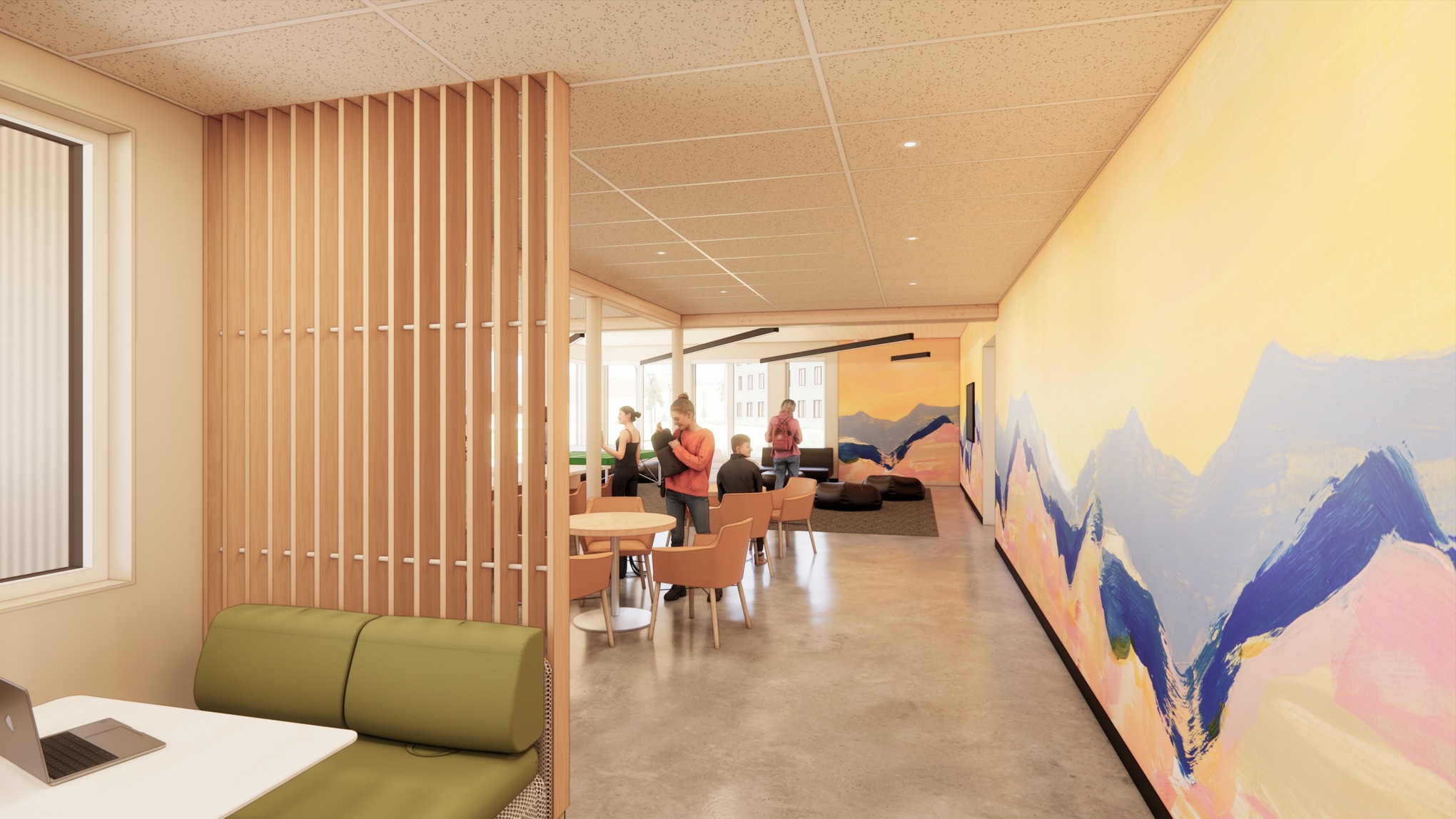
Oregon Tech Project Manager and Director of Facilities Services Thom Darrah highlighted the collaboration involved in bringing the project to life. “This residence hall shows what can be done when architects, construction managers, and the campus community come together with a shared vision.”
In mid-March, students in the College of Engineering, Technology, and Management will participate in Mass Timber Days, where they will receive hands-on training from the architects and construction management team at the construction site. These activities provide practical experience, preparing students for careers in architecture, engineering, and construction.
“This new residence hall offers real-world, project-based learning opportunities for our students, consistent with the mission of our polytechnic university,” said President Naganathan. “It allows our students to connect directly with industry professionals and experience the use of innovative materials and methods in action.”
Stay tuned to hear more about the student experience during Mass Timber Days.







